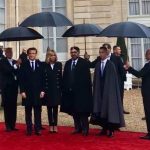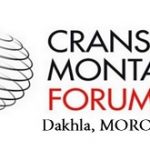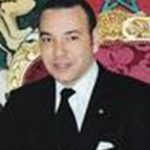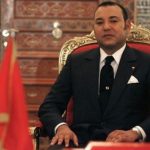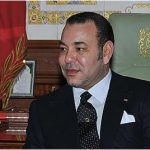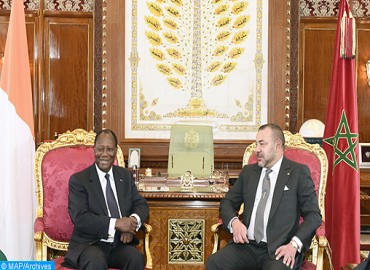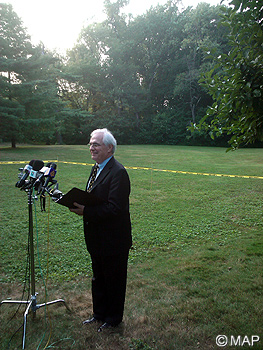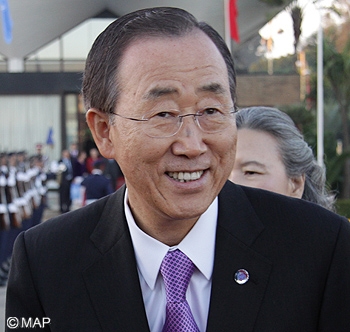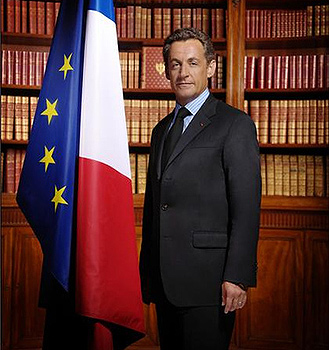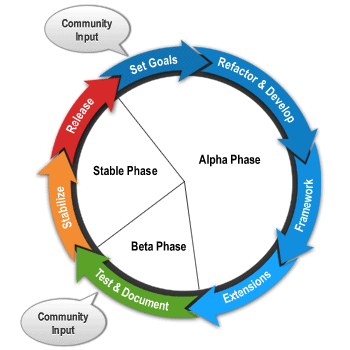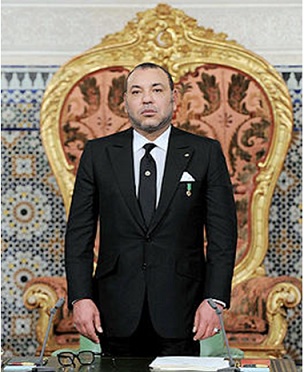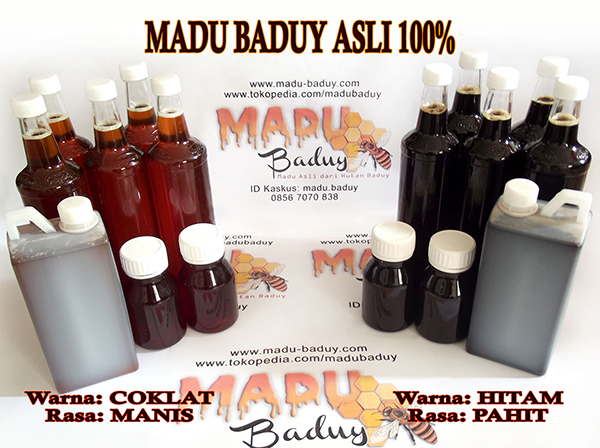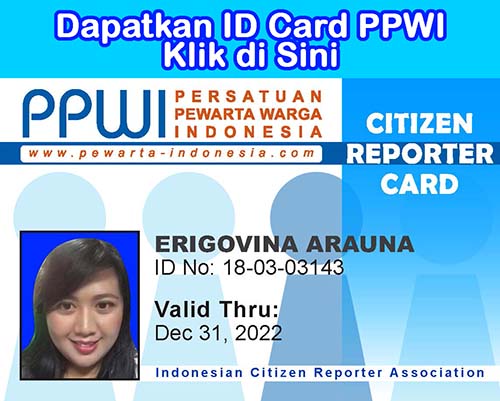Full Text of King Mohammed VI’s Message to Participants in Crans Montana Forum
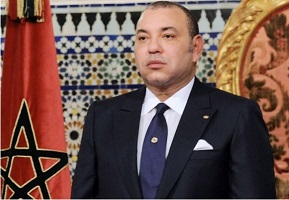
PERSISMA, Dakhla, Morocco – King Mohammed VI addressed a message to the participants in Crans Montana Forum, which kicked off Friday in the southern city of Dakhla.
Here follows the full text of the Royal message, read by chairman of the Council of the Dakhla-Oued Eddahab region, Ynja Khattat:
Praise be to God
May peace and blessings be upon The Prophet, His Kith and Kin
Your Excellencies,
Ladies and Gentlemen,
It is a great pleasure for me, once again, to send a message to the participants in the annual session of the Crans Montana Forum, which has been convened for the second time in a row in Dakhla, in the Dakhla-Oued Ed-Dahab region, which is so dear to me.
This year’s session, which is devoted to improving governance for the achievement of sustainable development, provides an opportunity to resume the very useful and worthwhile discussion started here last year. I look forward to seeing this debate further expanded through consultation, exchange of views and a pooling of expertise and goodwill.
The presence of more than 500 foreign dignitaries here in Dakhla, including many government officials from more than one hundred countries and representatives of international organizations, reflects a unanimous commitment to this event and to its overarching theme for the benefit of Africa.
Thanks to your joint efforts, this important international event helps remind the world that there will be no future without a cohesive, solidarity-based Africa standing tall and proud.
Ladies and Gentlemen,
For decades, our Continent suffered tremendously in a world divided by colonization. It reeled under the effects of ideological conflicts which were not of its making.
Today, it is high time Africa regained its rights vis-a-vis both history and geography: a rich history of African peoples united by centuries of exchanges and diverse ties, and geographical facts which show just how important it is to have integrated, complementary sub-regional groupings.
Africa owes it to itself to become a key partner in international cooperation mechanisms, and not just a mere object of this cooperation or a prize others vie for. Africa should no longer be perceived as a vulnerable continent, but rather as a driver of progress.
South-South cooperation is not an empty slogan, nor is it an appendix of development policies – one that is restricted to mere technical assistance. South-South cooperation is the result of a homogeneous strategic vision designed to promote the development of states and meet the needs of African populations. It revolves around the potential, skills and expertise of each one of the stakeholders concerned.
For this reason, Morocco has made South-South cooperation one of the pillars of its foreign policy as well as a determinant of its international action.
It therefore seeks – on its own as well as jointly with partners and sister nations – to implement concrete programs in targeted areas to achieve measurable outcomes in terms of growth and the well-being of the populations of the countries of the South in the economic, social, cultural, environmental and religious domains.
Ladies and Gentlemen,
Your decision to meet, once again, in the city of Dakhla has more than just a symbolic meaning. It bears witness to the fact that fresh momentum has been given to the vision we have of the Moroccan Sahara as a place conducive to interaction as well as a platform for time-honored human and commercial relations and for the exchange of knowledge between the South and the North.
At your previous meeting, I was keen to share with you my ambition to see a new development model crafted for this region which is so dear to me. It is the result of a promising strategy through which we seek to bring our three southern provinces to a level of development that will enable them to fully play their role as an African economic hub and as a bridge between Europe, the Arab Maghreb the Sahel region.
Today, development plans are a tangible reality. During recent visits to the Sahara region, I launched a number of large-scale development projects, honoring my commitment to the citizens of our southern provinces.
We are about to create competitive economic hubs to stimulate growth, provide jobs, enhance cultural expression, uphold human rights and protect the environment.
These hubs are expected to support productive sectors, such as agriculture, sea fishing and ecotourism, while also enhancing land, air and sea transport networks between the southern provinces and the Kingdom’s other regions on the one hand, and between the region and other African countries on the other.
Special attention has also been paid to the social side through, for example, the implementation of a number of projects to improve the quality of education as well as health and socio-economic services.
I wanted these structural projects to coincide with the implementation of advanced regionalization, following the recent regional elections, the establishment of bodies that were elected directly by the citizens and the provision of important constitutional and legal powers as well as financial and human resources.
Ladies and Gentlemen,
The world in general – and especially our regions – is facing unprecedented environmental challenges. These are not just climate challenges; they also – and more importantly – involve development challenges.
Africa should have a say in this global debate. It should neither keep quiet nor allow itself to be dictated to, let alone be forced to choose between development and the preservation of the environment.
It is this vision that Morocco has chosen to champion as it prepares to host the 22nd Conference of the Parties to the UN Framework Convention on Climate Change (COP22) in Marrakech next November.
I hope that this global conference will celebrate South-South cooperation for the preservation of the environment. I also hope it will put Africa and all developing countries at the heart of the international agenda.
Our overall objective is to make sure that the voice of a united, strong and determined Africa is heard and that it is heeded.
I believe it is up to the international community to devise development patterns that ensure the well-being of people, while meeting the requirements of sustainability.
We must all act along these lines and listen to the creative segments in our societies, namely our youth, for they are the ones who are innovating and who are shaping tomorrow’s world.
Your Excellencies,
Ladies and Gentlemen,
It is the responsibility of States to champion forward-looking plans and to strive to implement them through determined action and structural projects.
However ambitious public policies may be, they will remain fragile if they are not fully embraced by the citizens and our civil societies.
This is the very essence of sustainable development. To be robust and sustainable, development must be driven by a vision shared by all stakeholders in society, and each one should decide how he or she is going to embody that vision.
That is why civil society organizations, women, young people, entrepreneurs and other social groups are important and should be involved in debates and in consultation mechanisms.
I know this firmly held belief is shared by the organizers of this meeting, and it is gratifying to note that several platforms will be at the disposal of those segments of society during the coming days.
I should like, in this regard, to pay tribute to Mr. Jean-Paul Carteron, President of the Crans Montana Forum, for his commitment to creating platforms throughout the world – and particularly in Africa – for discussion, debate and mutual enrichment.
I also wish to commend ISESCO and its Director-General, His Excellency Dr. Abdulaziz Ben Othman Altwajiri, for their continued support for an event that reflects the values and beliefs championed by this prestigious Organization.
Thank you.
Wassalamu alaikum warahmatullah wabarakatuh.
MWN With MAP

